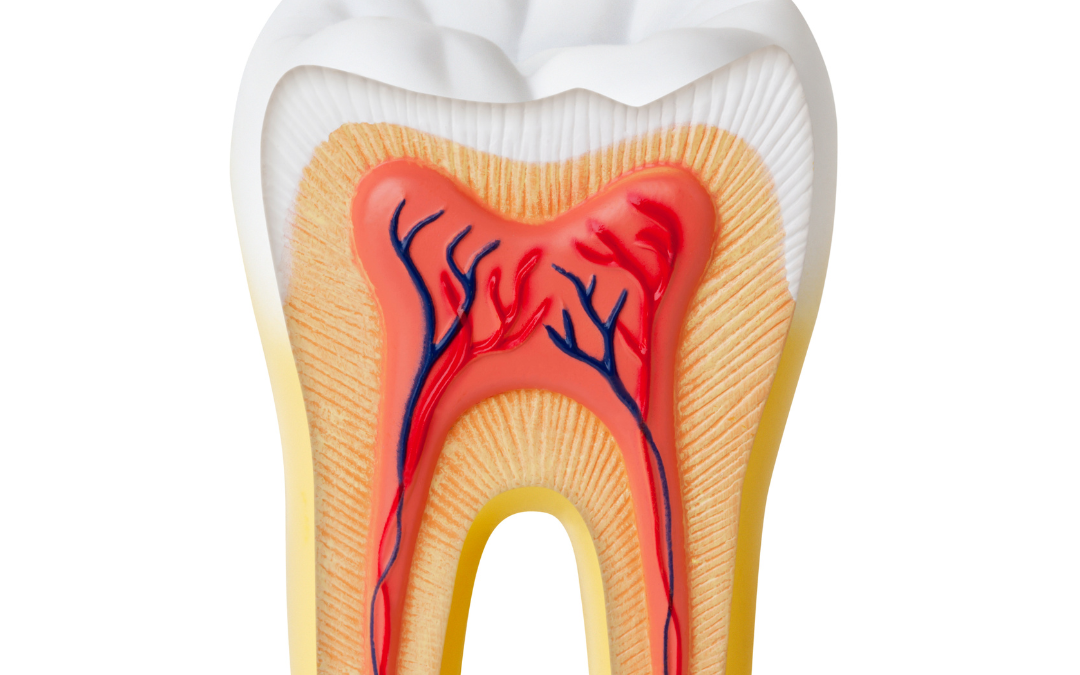Maintaining good oral health is crucial for a beautiful smile and overall well-being. Unfortunately, many individuals encounter common dental problems that can significantly impact their oral health. In this comprehensive blog post, we will explore some of the most prevalent dental issues and provide valuable insights from your trusted family dentist in Camberwell. By understanding these problems and adopting preventive measures, you can safeguard your oral health and preserve your radiant smile.
Tooth Decay: Causes and Prevention – Tooth decay, also known as dental caries, is one of the most widespread dental problems. It occurs when bacteria in the mouth convert sugars and starches from food into acids that attack the tooth enamel. This section will delve into the causes of tooth decay, including poor oral hygiene, sugary diets, and inadequate fluoride exposure. Moreover, it will offer practical preventive measures such as regular brushing and flossing, reducing sugar intake, and using fluoride toothpaste.
Causes of Tooth Decay:
- Poor Oral Hygiene: Inadequate brushing and flossing allow plaque, a sticky film of bacteria, to build up on the teeth. Plaque produces acids that attack the tooth enamel, leading to decay over time.
- Sugary and Acidic Diets: Frequent consumption of sugary and acidic foods and drinks creates an environment conducive to tooth decay. Bacteria in the mouth feed on sugars and produce acids that erode the enamel.
- Lack of Fluoride: Fluoride helps strengthen tooth enamel and protects against decay. Insufficient exposure to fluoride, whether through water, toothpaste, or dental treatments, increases the risk of tooth decay.
Prevention of Tooth Decay:
- Proper Oral Hygiene: Brushing your teeth at least twice a day for two minutes and flossing once a day are crucial for removing plaque and preventing tooth decay. Use a fluoride toothpaste and a soft-bristled toothbrush to effectively clean all surfaces of your teeth.
- Limit Sugary and Acidic Foods: Reduce your intake of sugary and acidic foods and drinks, such as sodas, candies, and citrus fruits. If you do consume them, rinse your mouth with water afterward and wait at least 30 minutes before brushing to avoid damaging the weakened enamel.
- Fluoride Use: Ensure adequate fluoride exposure by using a fluoride toothpaste and a mouth rinse containing fluoride. Consult with your family dentist in Camberwell about the need for additional fluoride treatments, especially for children.
- Healthy Diet: Maintain a balanced diet rich in fruits, vegetables, whole grains, and lean proteins. These foods provide essential nutrients for strong teeth and gums.
- Regular Dental Check-ups: Schedule regular visits to a family dentist in Camberwell for professional cleanings and comprehensive examinations. Dental professionals can detect early signs of tooth decay and provide appropriate treatment before the condition worsens.
- Dental Sealants: Consider dental sealants, a protective coating applied to the chewing surfaces of the back teeth. Sealants create a barrier against plaque and acids, reducing the risk of tooth decay.

Gum Disease: Identification and Prevention – Gum disease, or periodontal disease, affects the gums and the tissues supporting the teeth. It ranges from mild gingivitis to severe periodontitis. This segment will explore the signs and symptoms of gum disease, such as swollen or bleeding gums, bad breath, and receding gums. Additionally, it will provide preventive strategies like proper oral hygiene, regular dental check-ups, and lifestyle modifications.
Identification of Gum Disease:
- Red and Swollen Gums: Healthy gums should appear pink and firm. If your gums are red, swollen, or tender, it may be an early sign of gum disease.
- Bleeding Gums: Gums that bleed easily, especially during brushing or flossing, can be a sign of gum disease. Healthy gums should not bleed.
- Persistent Bad Breath: Gum disease can cause persistent bad breath, known as halitosis, due to the bacteria present in the infected gums.
- Receding Gums: As gum disease progresses, the gums may start to pull away from the teeth, causing them to appear longer. This can lead to tooth sensitivity and even tooth loss if left untreated.
- Loose or Shifting Teeth: Advanced gum disease can result in loose teeth or a change in the alignment of your bite. This indicates significant damage to the gum and bone supporting the teeth.
Prevention of Gum Disease:
- Proper Oral Hygiene: Brush your teeth at least twice a day and floss daily to remove plaque and prevent gum disease. Use a soft-bristled toothbrush and a fluoride toothpaste. Consider using an antimicrobial mouthwash as an additional step to reduce bacteria in the mouth.
- Regular Dental Check-ups: Schedule regular visits to your family dentist in Camberwell for professional cleanings and comprehensive examinations. Dental professionals can detect early signs of gum disease and provide appropriate treatment before it progresses.
- Healthy Lifestyle Choices: Avoid smoking and limit alcohol consumption, as these habits can increase the risk and severity of gum disease. Maintain a balanced diet, rich in fruits, vegetables, and whole grains, which helps support gum health.
- Stress Management: Chronic stress can weaken the immune system, making it harder for the body to fight off infections, including gum disease. Practice stress management techniques, such as exercise, meditation, and adequate sleep, to lower your risk.
- Treat Underlying Conditions: Certain medical conditions, such as diabetes and hormonal changes in women, can increase the susceptibility to gum disease. Managing these conditions effectively can help reduce the risk of developing gum disease.
Gum disease is a preventable oral health issue that can lead to serious consequences if left untreated. By recognizing the signs of gum disease, such as red and swollen gums, bleeding gums, bad breath, receding gums, and loose teeth, you can take prompt action to seek professional dental care. Prevention involves maintaining proper oral hygiene, regular dental check-ups, adopting a healthy lifestyle, and managing underlying conditions effectively.

Tooth Sensitivity: Causes and Management – Tooth sensitivity is a common problem characterized by discomfort or pain when consuming hot, cold, sweet, or acidic foods and beverages. This section will discuss the various causes of tooth sensitivity, such as enamel erosion, gum recession, and tooth grinding. It will also offer practical tips for managing tooth sensitivity, including using desensitizing toothpaste, avoiding triggering foods and drinks, and seeking professional dental advice.
Causes of Tooth Sensitivity:
- Tooth Enamel Erosion: The protective outer layer of the tooth, called enamel, can gradually wear away due to factors such as acidic foods and drinks, aggressive brushing, or tooth grinding. This exposes the sensitive inner layer called dentin, which contains microscopic tubules leading to nerve endings.
- Gum Recession: When the gums recede, exposing the tooth roots, sensitivity can occur. Gum recession can result from factors like gum disease, aggressive brushing, or aging.
- Tooth Decay: Cavities or tooth decay can cause tooth sensitivity, especially when the decay reaches the inner layers of the tooth, where the nerves are located.
- Teeth Grinding: Persistent teeth grinding, known as bruxism, can wear down the enamel and lead to tooth sensitivity.
Management of Tooth Sensitivity:
- Use a Soft-Bristled Toothbrush: Switch to a soft-bristled toothbrush and gentle brushing technique to avoid further enamel erosion. Brush twice daily, using a fluoride toothpaste for sensitive teeth.
- Practice Proper Oral Hygiene: Maintaining good oral hygiene is essential to prevent and manage tooth sensitivity. Brushing twice a day and flossing daily helps remove plaque and prevent gum disease, which can contribute to sensitivity.
- Avoid Acidic Foods and Drinks: Limit your consumption of acidic foods and drinks, such as citrus fruits, sodas, and sports drinks. If you do consume them, rinse your mouth with water afterward to neutralize the acid.
- Use a Desensitizing Toothpaste: Consider using a toothpaste specifically designed for sensitive teeth. These toothpastes contain ingredients that block the sensation of pain and help reduce tooth sensitivity over time.
- Limit Teeth Whitening: Teeth whitening treatments can sometimes cause tooth sensitivity. If you experience sensitivity after whitening, talk to your dentist in Camberwell about adjusting the treatment or using desensitizing products.
- Wear a Night Guard: If you grind your teeth, wearing a night guard can help protect your teeth from further damage and reduce tooth sensitivity.
- Seek Professional Dental Care: If your tooth sensitivity persists or worsens, it is essential to consult with a dentist. They can identify the underlying cause of your sensitivity and recommend appropriate treatments, such as fluoride varnishes, dental sealants, or in severe cases, a gum graft.
Tooth sensitivity can be a bothersome dental issue, but with proper management, it can be controlled and minimized. Understanding the causes of tooth sensitivity, such as enamel erosion, gum recession, tooth decay, and teeth grinding, is crucial for implementing effective management strategies. By following a proper oral hygiene routine, avoiding acidic foods and drinks, using desensitizing toothpaste, and seeking professional dental care when needed, you can find relief from tooth sensitivity and maintain a healthy, pain-free smile. Remember, it is always best to consult with a dentist for personalized advice and treatment options tailored to your specific needs.

Dental Cavities in Children: Prevention and Treatment – Children are susceptible to dental cavities due to improper oral care and a higher consumption of sugary foods and drinks. In this segment, we will focus on preventive measures for children’s dental cavities, including establishing good oral hygiene habits, limiting sugar intake, and applying dental sealants. Moreover, we will address the importance of regular dental visits and the available treatment options for children with dental cavities.
Prevention of Dental Cavities:
- Establish a Good Oral Hygiene Routine: Start taking care of your child’s oral health from an early age. Clean their gums with a soft cloth or infant toothbrush before the eruption of the first tooth. Once teeth appear, brush them twice a day using a fluoride toothpaste. Encourage proper brushing technique and ensure they brush for at least two minutes.
- Limit Sugary Foods and Drinks: Sugary foods and drinks, including candy, soda, and juices, can contribute to the development of cavities. Encourage a balanced diet rich in fruits, vegetables, and whole grains while limiting the consumption of sugary treats. If your child does indulge in sugary snacks, make sure they rinse their mouth with water afterward.
- Encourage Regular Dental Check-ups: Schedule regular visits with your Riversdale Dental dentist in Camberwell for routine check-ups and professional cleanings. Dental professionals can identify early signs of cavities, provide preventive treatments like fluoride varnish or dental sealants, and educate both parents and children on proper oral care.
- Fluoride Treatment: Fluoride is a natural mineral that helps strengthen tooth enamel and prevent cavities. Your dentist in Camberwell may recommend fluoride treatments or prescribe fluoride supplements if your child’s water supply lacks fluoride.
Treatment of Dental Cavities:
- Dental Fillings: If your child has a cavity, the decayed portion of the tooth needs to be removed and replaced with a dental filling. The filling material can be tooth-colored (composite resin) or silver amalgam, depending on the location and extent of the cavity.
- Dental Crowns: In cases where the cavity is extensive or affects a primary molar, a dental crown may be necessary to restore the tooth’s functionality and strength.
- Pulp Therapy: If the cavity reaches the pulp of the tooth, which contains the nerves and blood vessels, pulp therapy (root canal treatment) may be required to save the tooth and prevent infection.
- Tooth Extraction: In severe cases where a tooth is extensively decayed or damaged, extraction may be necessary. It is essential to replace the missing tooth to prevent misalignment and other dental issues in the future.
- Dental Sealants: Dental sealants are a preventive measure used to protect the chewing surfaces of the back teeth from cavities. These thin, plastic coatings are applied to the molars and premolars, sealing off the grooves and pits that are prone to decay.
Preventing and treating dental cavities in children is crucial for their oral health and overall well-being. By establishing a good oral hygiene routine, limiting sugary foods and drinks, encouraging regular dental check-ups, and considering preventive measures like fluoride treatment and dental sealants, parents can significantly reduce the risk of cavities in their children. In case cavities do occur, seeking prompt dental treatment, such as fillings or dental crowns, is essential to prevent further damage and maintain a healthy smile. Remember, your children’s dentist in Camberwell is your partner in ensuring your child’s oral health, so consult them for personalized advice and treatment options tailored to your child’s needs.

Oral Care During Pregnancy: Tips and Precautions – Pregnancy triggers various hormonal changes that can affect oral health. This section will discuss the common dental problems faced by pregnant women, such as pregnancy gingivitis and tooth decay. It will provide essential tips for maintaining good oral hygiene during pregnancy, including regular brushing and flossing, eating a balanced diet, and seeking dental care tailored to the unique needs of expectant mothers.
- Maintain a Good Oral Hygiene Routine: Brushing and flossing regularly are crucial for preventing gum disease and tooth decay. Brush your teeth at least twice a day using a soft-bristled toothbrush and fluoride toothpaste. Don’t forget to floss daily to remove plaque and food particles from between your teeth.
- Choose a Safe Toothpaste: It’s important to choose a toothpaste that is safe for use during pregnancy. Look for toothpastes that are fluoride-based and approved by dental associations. Avoid toothpastes with excessive whitening agents or strong flavors.
- Pay Attention to Your Gums: Hormonal changes during pregnancy can cause the gums to become more sensitive and prone to inflammation. This condition, known as pregnancy gingivitis, can lead to swollen, tender gums and bleeding while brushing or flossing. If you experience these symptoms, be sure to inform your dentist and maintain a thorough oral hygiene routine.
- Watch Your Diet: A healthy diet is essential for both your overall health and your oral health during pregnancy. Include plenty of fruits, vegetables, whole grains, and lean proteins in your meals. Limit sugary snacks and drinks, as they can increase the risk of tooth decay. Stay hydrated by drinking plenty of water throughout the day.
- Consider Your Morning Sickness: If you experience morning sickness or frequent vomiting during pregnancy, it’s important to take extra care of your teeth. Rinse your mouth with water or a fluoride mouthwash after vomiting to neutralize the stomach acid and protect your tooth enamel. Wait for about 30 minutes before brushing your teeth to avoid brushing away softened enamel.
- Schedule Regular Dental Check-ups: Regular dental check-ups are crucial during pregnancy. Inform your dentist about your pregnancy and any changes or concerns you may have. Routine cleanings and examinations can help prevent and detect any dental issues early on, ensuring a healthy smile for both you and your baby.
- Avoid Dental Procedures During the First Trimester: If possible, it’s advisable to avoid elective dental procedures during the first trimester when the baby’s organs are developing. However, if you experience a dental emergency or require essential treatment, consult with your obstetrician and dentist to ensure safe and appropriate care.
- Communicate with Your Healthcare Providers: Open communication between your dentist, obstetrician, and other healthcare providers is crucial during pregnancy. Inform them about any medications you are taking, any changes in your oral health, or any concerns you may have. They can provide guidance and ensure that your oral care aligns with your overall pregnancy care.
Maintaining good oral health during pregnancy is essential for both the mother and the baby’s well-being. By following a proper oral hygiene routine, watching your diet, addressing gum issues promptly, and scheduling regular dental check-ups, you can minimize the risk of dental problems and ensure a healthy smile. Remember to communicate with your healthcare providers and seek their guidance for any specific concerns or treatments during pregnancy. With proper oral care, you can enjoy a radiant smile throughout your pregnancy journey and beyond.
Preventing common dental problems is key to maintaining optimal oral health. By understanding the causes and implementing preventive measures discussed in this comprehensive blog post, you can protect your teeth and gums from tooth decay, gum disease, tooth sensitivity, and other prevalent issues. Remember to prioritize regular visits to your family dentist in Camberwell, adhere to proper oral hygiene practices, and make necessary lifestyle adjustments. With a proactive approach, you can preserve your beautiful smile and enjoy the benefits of excellent oral health throughout your life.


